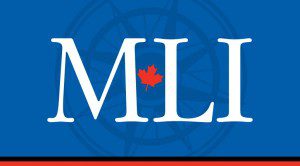 Canada needs to prepare to expand its naval presence in East Asia to help the US counter the threat from China, writes Adam MacDonald.
Canada needs to prepare to expand its naval presence in East Asia to help the US counter the threat from China, writes Adam MacDonald.
By Adam MacDonald, Aug. 29, 2017
Canada’s diplomatic and strategic engagement in East Asia has been erratic over the past two decades. Successive governments have been incapable or unwilling to clearly articulate a regional strategy, remaining virtually silent on major geopolitical tensions.
Some observers have advocated regular deployments of the Royal Canadian Navy (RCN) to create a visible, routine presence in the region. One unexplored question is whether Canadian naval ships should participate in U.S. freedom of navigation (FON) patrols in the South China Sea.
U.S. FON patrols are meant to uphold the principle of freedom of navigation for all maritime vessels and aircraft, as outlined in the UN Convention on the Law of the Sea. While FON naval patrols take place globally, they are particularly salient when placed in the context of the South China Sea disputes.
Successive governments have been incapable or unwilling to clearly articulate a regional strategy, remaining virtually silent on major geopolitical tensions.
These disputes are the result of competing topographical and maritime claims in the South China Sea from Brunei, China, Malaysia, the Philippines, Taiwan and Vietnam.
Of these, China has by far the most expansive claims, asserting historically-derived ownership over all islands and reefs and upwards of 90 per cent of the surrounding waters. In addition, China has undertaken the most intensive land reclamation activities, creating manmade islands complete with runways, ports and military infrastructure.
Notably, The Hague’s Permanent Court of Arbitration has ruled decisively against Beijing’s expansive claims and has called on Beijing to halt its reclamation activities — a ruling that China has ignored.
In response to Beijing’s actions, the U.S. has been conducting FON patrols around Chinese-occupied islets and rocks, sailing nearby to promote and preserve its right to access these areas. The Trump administration has continued this practice with its initial FON patrol near Mischief Reef. Recent reports indicate that such patrols could become even more regular.
Canada must continue to engage East Asia on a permanent basis, including through regular deployment of the RCN. As part of that effort, Canadian political and military leaders should begin to lay the groundwork for a possible future American request for allies to take part in FON patrols.
Canada has not been asked by Washington to participate. But we cannot assume that such a request won’t come soon. Debate is already ongoing on possible FON patrols in Australia, while Great Britain recently agreed to undertake such activities. With the Trump administration’s fixation on burden-sharing, it may only be a matter of time before a ‘polite’ request comes our way.
Before that happens, Canada needs to first adopt a more strategic, comprehensive mindset when it comes to engaging East Asia. In particular, it needs to answer some very foundational questions:
- What, exactly, is Canada’s position on the South China Sea disputes — specifically on China’s expansive claims and aggressive activities?
- How would regional allies like Japan and Australia react to Canadian participation in FON patrols, given their own hesitancy on this issue?
- Under what conditions would Canada support the United States militarily in the South China Sea?
Second, Canada needs to have a clear position on the rise of China and what the nature of Sino-Canadian relations should be. Such strategic-level thinking about China requires an assessment of its intentions towards regional order, and possible responses to deter revisionist behaviour.
Canada should adopt a more comprehensive strategic approach to the region and clarify its own thinking on China, the South China Sea and international maritime law more generally.
Ottawa should not be deterred from acting here by the expectation of a negative reaction from China. At the very least, the absence of a Canadian position opens the door for confusion and misunderstandings.
Third, Canada needs clarity on some of the more nuanced and complicated legal matters framing the South China Sea disputes. Indeed, Canada has never commented on the merits of U.S. military activities in China’s exclusive economic zones. Our legal views should be nailed down before Canada is faced with a decision on possibly participating in FON patrols.
A convincing argument can be made for Canada’s participation in FON operations. It would be a small but important contribution to regional stability, help to support broader adherence to international maritime law, and even alleviate U.S. concerns about allied burden-sharing.
But in order to make a well-informed decision, Canada should adopt a more comprehensive strategic approach to the region and clarify its own thinking on China, the South China Sea and international maritime law more generally.
Adam P. MacDonald, a former naval officer in the Canadian Armed Forces, is an independent academic based in Halifax, Nova Scotia.




